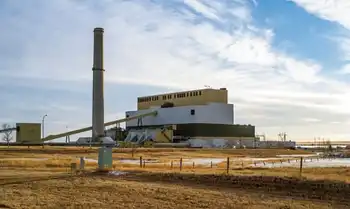Report slams AECL and nuclear regulator
OTTAWA, CANADA - Widespread sloppiness at both Canada's nuclear regulator and government-owned Atomic Energy Canada Ltd prompted the damaging closure of a reactor which made medical radioisotopes, a report said.
AECL's 50-year-old Chalk River reactor - which produces more than two-thirds of the global supply - was shut down for three weeks late last year, quickly triggering shortages.
AECL's chairman quit in December, and in January, Ottawa fired the head of the Canadian Nuclear Safety Commission.
A damning report by three independent consultants said officials from AECL and the commission often ignored standard procedures that would have identified the problem earlier.
"This culture of informality was considered a significant and fundamental flaw in both organizations' methods of operation and contributed to a series of misunderstandings," said the 119-page report.
"It became clear there were several basic processes which were flawed, within both AECL and CNSC," it added.
Communications between the two were so bad that AECL did not make crucial safety improvements while the regulator did not check they had been carried out.
The isotopes, when injected into the body, give off radiation that can be seen by a camera to diagnose cancer, heart disease and other medical conditions.
The crisis started after the reactor was shut down for maintenance last November. The CNSC then discovered that contrary to repeated promises, AECL had not connected two crucial water pumps to an emergency power supply.
The CNSC refused to allow the reactor to be started up again, forcing Parliament to overrule the regulator.
The report said AECL's operating licenses were too vague and did not spell out what safety upgrades were needed. Those running the reactor had not found crucial components because they did not believed they were required.
"The safety benefit of implementing the modification to connect the (pumps) to the emergency power supply was not agreed upon or well understood by (the reactor) site management," the report said.
Even though some CNSC staff knew the pumps had not been connected, they did not tell their superiors.
Once the problem became clear, AECL proposed operating the reactor for a short period with just one pump linked to the emergency power supply. Unfortunately, neither organization had any way of determining whether this would be safe.
The report also said the CNSC did "not have an effective formal system for tracking inspection and license issues" and recommended that inspectors be given more training.
The heads of AECL and the CNSC said in a statement they were working to deal with the problems outlined in the report.
The isotopes fiasco underlined existing concerns about the management at AECL. In May, Ottawa said it was scrapping an AECL nuclear reactor project designed to produce medical radioisotopes and take over from the older reactor.
The government cited years of technical problems and cost overruns with the project, which had cost more than $500 million to develop.
Chalk River produces medical isotopes for Canadian health care company MDS Inc and its MDS Nordion division, which is responsible for about half of world supply.
Related News

Alberta gives $40M to help workers transition from coal power jobs
EDMONTON - Alberta is putting aside $40 million to help workers losing their jobs as the province transitions away from thermal coal mines and coal-fired power plants over the next decade.
Labour Minister Christina Gray says the money will top up benefits to 75 per cent of a worker’s previous earnings during the time they collect employment insurance.
Alberta is asking the federal government to not claw back existing benefits as the province tops up those EI benefits, while also extending EI benefits for retiring coal workers.
Gray says even if the federal government does not step up, the province will provide the…




